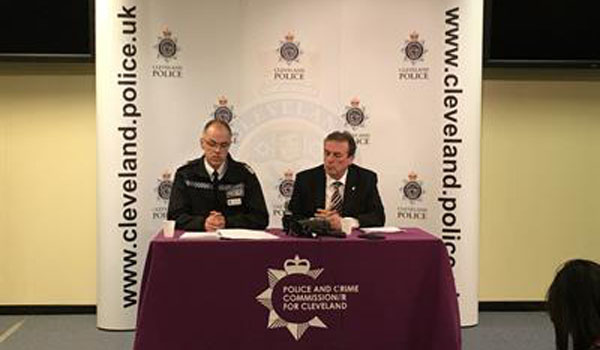RIPA scandal leads to scrapping of Cleveland Polices Professional Standards Department
A force will completely overhaul its Professional Standards Department following revelations that it spied on journalists phones.
A force will completely overhaul its Professional Standards Department following revelations that it spied on journalists phones.
Cleveland Police has announced plans to dismantle its complaints and misconduct unit and replace it with an entirely new body.
For the first time in the forces history, this department could be led by someone from outside of policing as applications are open to external candidates.
The force now intends to identify best practice from within and outside of the service and will use this to shape the replacement.
Chief Constable Iain Spittal said: We have good staff working with the teams that make up the department, however many of the approaches are old fashioned and could harbour an environment where mistakes can be made. These structures constrain their skills and abilities.
We need to dismantle these structures and establish a new modern framework which further transforms how we deal with complaints and investigations.
The announcement, made at a press conference on Thursday (January 5), comes in the wake of a scandal that saw Cleveland Police criticised for using surveillance legislation to conduct covert activity against reporters.
The force used powers under the Regulation of Investigatory Powers Act (RIPA) to track journalists phones over several months in 2012.
An Investigatory Powers Tribunal held last month indicated that Cleveland Polices use of RIPA was unlawful.
Although the final judgment has not been announced, Mr Spittal apologised for the intrusion and has personally contacted the individuals affected.
He also confirmed that there has been no similar use of RIPA legislation since he joined the force in 2013, and that an inquiry will be held to investigate the decision to monitor the phones.
To lay the groundwork for the new standards department, Mr Spittal and police and crime commissioner (PCC) Barry Coppinger have announced a review of how other regulatory bodies operate.
This project will be led by John Armstrong, an expert in police integrity who was recommended by Her Majestys Inspectorate of Constabulary.
It will be overseen by Deputy Chief Constable Simon Nickless and the PCCs Chief Executive, Simon Dennis.
In the interim period, the Professional Standards Department will be headed up by Superintendent Fiona Gaskell from Hertfordshire Constabulary.
The review also coincides with a planned inspection of the department as part of Mr Coppingers Towards 2020 reform programme.
Mr Coppinger said: A key commitment of my police and crime plan was for Cleveland Police to become a national lead in terms of professional standards.
It is clear from recent cases that mistakes have been made in the past. I hope those affected can look at the changes we are now implementing and accept we have listened, we have learned and we are determined to improve.
The RIPA scandal is not the first controversy to hit Cleveland Police, which has in recent years been beset by accusations of corruption and institutional racism.
In 2012, then Chief Constable Sean Price was arrested and sacked following a gross misconduct inquiry.
The following year, former Deputy Chief Constable Derek Bonnard was also dismissed after he was found guilty of gross misconduct counts including obstructing a criminal investigation and misusing public funds.
The force is also alleged to have used RIPA to spy on officers making accusations they were racially abused by their colleagues.
In November, former Police Constable Nadeem Saddique was awarded almost £460,000 in compensation at an employment tribunal.
The officer claimed he was forced out of Cleveland Polices VIP protection unit because of his race and experienced problems with discrimination for a number of years.
However, Mr Coppinger denied rumours that these scandals might see the force merged with its neighbours, adding that such a move would not benefit the regions neighbourhood policing model.
The overhaul was welcomed by local MPs, who described it as a vindi


